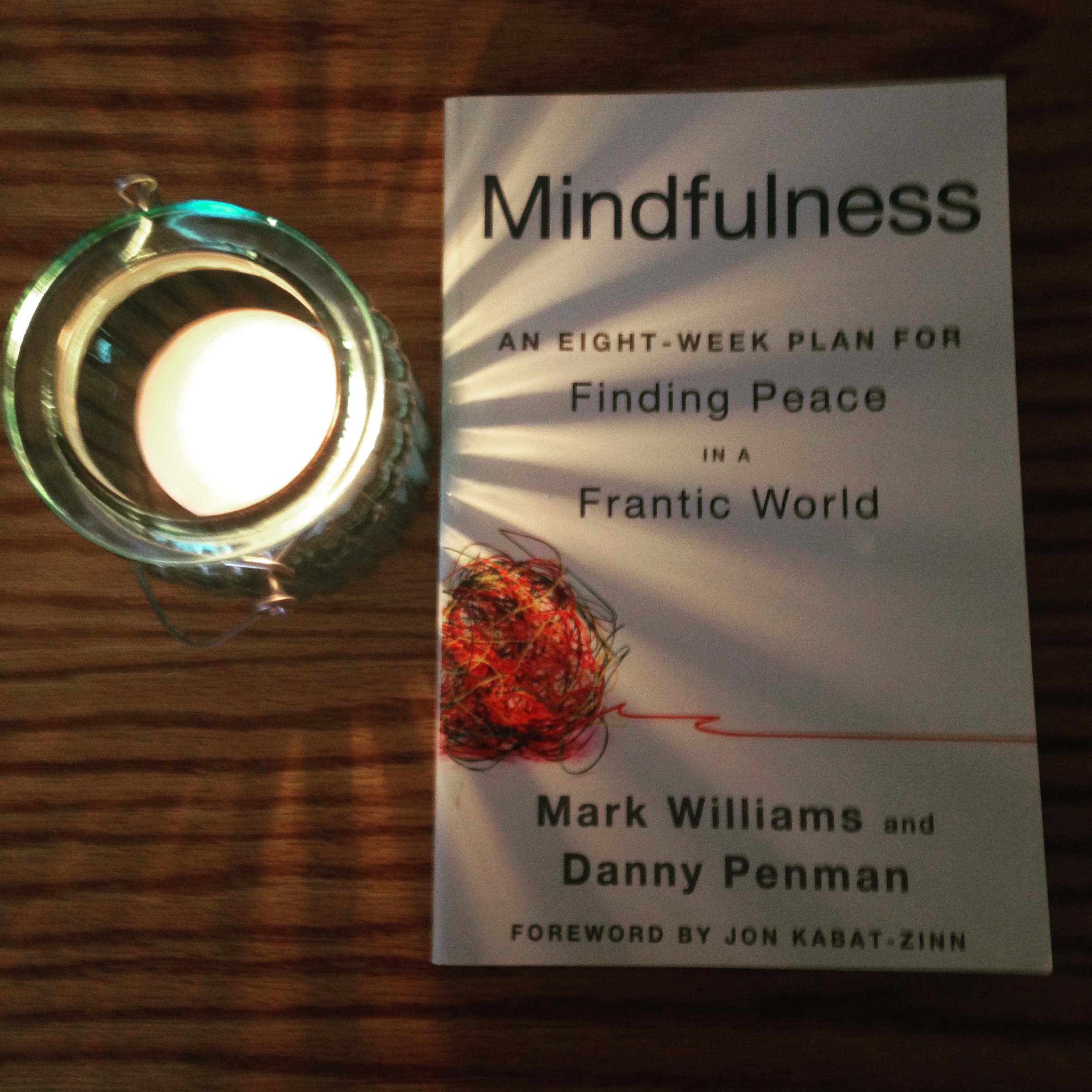
Mindful or mind full?
I definitely felt the latter when I picked up the book Mindfulness by Mark Williams and Danny Penman. I began reading with great hopes of finding more strategies to calm my swirling mind and stay present and powerful, regardless of the storms brewing around me (or, many times, within me). I also wanted to share what I learned with family members, coaching clients, and the leaders with whom I work.
What I took away from the book was not at all what I expected (which I guess means I read it mindfully, right?). While I did learn specific and helpful techniques, my biggest takeaways came in the form of concepts that, if held high, would naturally bring me the right strategies when I need them. Here were the three biggies:
1. Get out of your head (and into the moment).
Do you spend a fair amount of time in your head? While I have definitely downsized my overthinking in recent years, I can still easily find myself considering things I wish I’d said (or didn’t say), wondering why I took (or didn’t take) a particular action, and coming up with witty responses three days after a conversation has ended.
By learning to quiet our minds, we discover that we don’t need to spend time ruminating, comparing, or sweating the small stuff. We become more attuned to what matters most and allow the fleeting worries to gently move elsewhere. “Mindfulness,” write Williams and Penman, “encourages you to treat yourself and others with compassion.”
And if there’s one thing this world could use more of, it’s compassion – for self and for others.
2. Slow down to achieve better.
Notice I didn’t say to achieve more, but that’s actually the reality, too. Just last week, a participant came up to me after a training event I facilitated. “I’ve noticed you’re using words like ‘mindful’ and ‘deliberate’ quite a bit in your writing lately,” he shared with me, “and they have become focus words for me, too. Interestingly, I find that when I slow down and take time to plan, I end up getting so much more done!”
Indeed!
One of the many exercises Williams and Penman offer is a chocolate meditation. (The name alone pulls you in, doesn’t it?) In essence, the activity involves choosing a piece of chocolate that you’ve never had before, then slowly, mindfully eating it, paying attention to detail. What is the aroma as you open the packet? What does the texture look and feel like? Chocolate has over 300 flavors – which ones can you sense as it rests on your tongue?
“Once you see the difference that paying full attention can make to the small things in life, you start to get an inkling of the cost of inattention,” the authors explain. “Just think of all the pleasures of seeing, hearing, tasting, smelling and touching that are drifting by unnoticed. You may well be missing vast portions of your daily life.” (Emphasis mine, because that was a wake-up call I needed).
3. ‘Acceptance’ is not a bad thing.
This is one of those lessons I apparently need to learn repeatedly.
I’ve always struggled with words like “acceptance” and “surrender” (which you can read more about here). To me, they seem to hold the undertone of “giving up;” as such, I can think of several life examples where I have continued with gritted teeth and clenched hands long after the joy or purpose in a pursuit has disappeared. So this statement caught my attention:
Mindful acceptance does not mean resignation to your fate. It’s an acknowledgement that an experience is here, in this moment – but instead of letting it seize control of your life, mindfulness allows you, simply and compassionately, to observe it rather than judge it, attack it, argue with it or try to disprove its validity.
They go on to discuss how this “radical acceptance” grants us the freedom to choose how we will proceed rather than just reacting. In this way, acceptance isn’t giving up – it’s giving us control.
In the midst of the changes sweeping through our world right now, it’s easy to feel overwhelmed. I couldn’t have picked up this book at a better time to remind me that we are powerful beyond measure, that we can respond rather than mindlessly react, and that actions chosen from a place of mindfulness will lead to greater and more impactful outcomes than when we have lost touch with ourselves. “Mindfulness is about seeing the world with greater clarity,” confirm the authors, “so you can take wiser, more considered action to change those things that need to be changed.”
If you seek greater awareness, calm, and mental freedom, check out Mindfulness. In the meantime, I’d love to know what helps you stay mindful? Feel free to share your thoughts below or on Facebook or Instagram!
Mindfulness: An Eight-Week Plan For Finding Peace in a Frantic World by Mark Williams and Danny Penman (Rodale, 2011).





